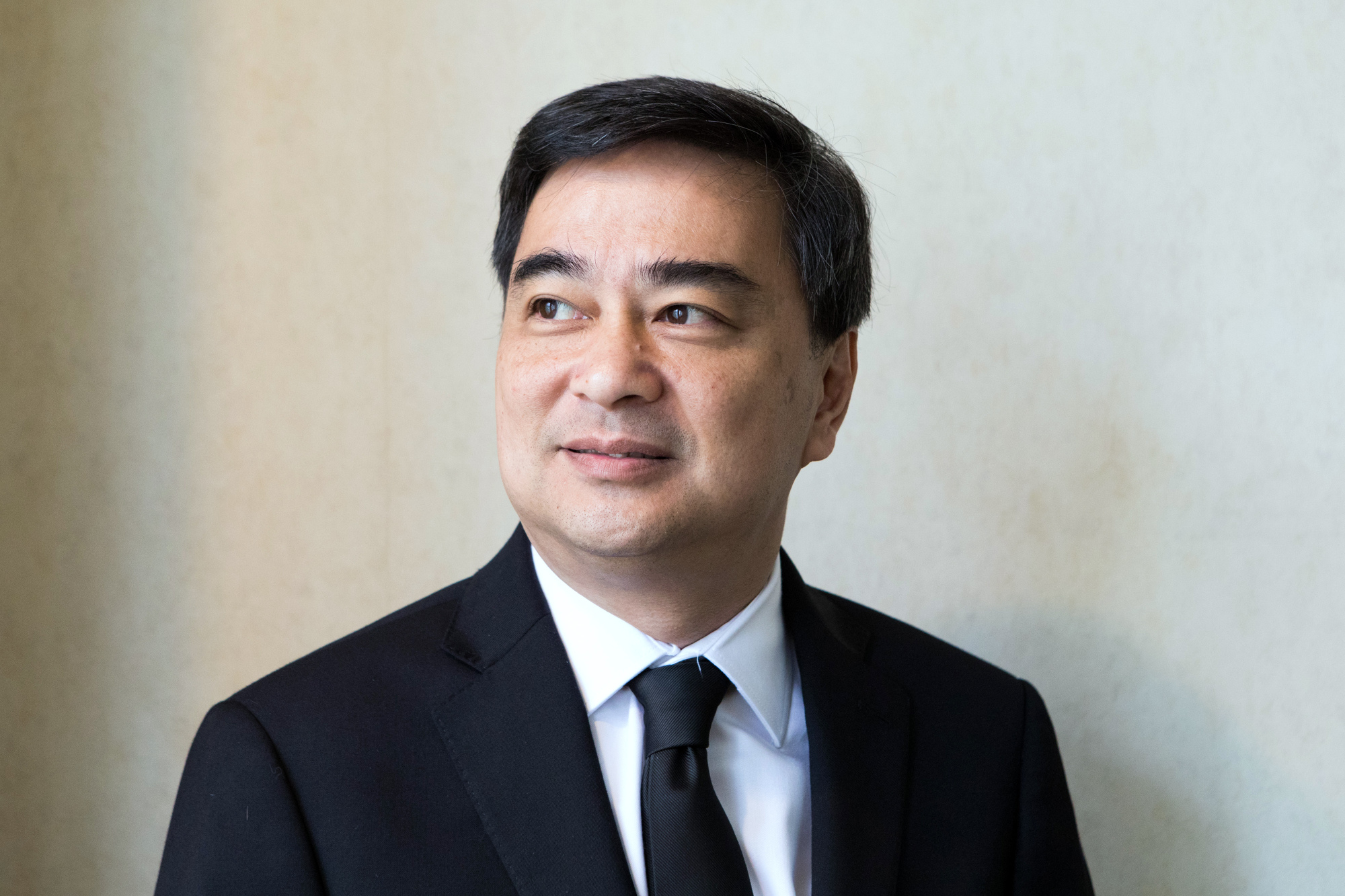Thailand faces the risk of discord between appointed senators and elected representatives after its expected return to democracy next year, according to former Prime Minister Abhisit Vejjajiva.
Critics say the country’s 20th constitution will lead to an upper chamber that gives appointed soldiers, judges and bureaucrats the power to stifle politicians voted into the House of Representatives. Abhisit said if a coalition or single party manages to achieve a lower-house majority, senators could in theory try to block its candidate for prime minister.
"There could well be a tug-of-war after the election," the 53-year-old leader of the Democrat Party said in an interview on Aug. 8 in Bangkok. "I don’t subscribe to the view that the way it’s written means that the senators can call the shots. It’s not as easy as some people think."
General Prayuth Chan-Ocha seized power in Thailand over three years ago after a period of political unrest, pledging to restore stability. A date for elections has yet to be announced, but Abhisit said he expected curbs on political parties to ease before the end of 2017 and polls in the second half of next year, if Prayuth’s military government sticks to its road map.
"If there is chaos, if there is instability, we could be in a different game," he said. "I see no other reasons to deviate from the road map."
If no single party or alliance of parties emerges with a lower-house majority, then "obviously the senators can have their say," Abhisit said.
Government spokesman Werachon Sukondhapatipak couldn’t immediately be reached for comment.
Thailand’s current stretch of military rule is one of the longest since the 1970s, in a country with a history of coups since the end of absolute monarchy in 1932. Protests have flared over the past decade along class and regional lines.
Allies of exiled former leader Thaksin Shinawatra, who introduced cheap health care and bolstered price support for farmers, have won the past five elections, only to be ousted by either the courts or military.
Abhisit’s party hasn’t won a majority in a nationwide vote since 1992. He was picked by legislators in December 2008 after a court dissolved the pro-Thaksin ruling party for election fraud. The decision coincided with the seizure of Bangkok’s airports by protesters wearing yellow shirts who oppose Thaksin.
Economic Focus
Prayuth’s military administration has championed ambitious infrastructure programs, the development of advanced industries and greater adoption of technology to help kick-start investment and bolster Thai economic growth.
A substantial current-account surplus and foreign buying of Thai bonds have made the baht Asia’s best-performing currency this year. The Bank of Thailand predicts 3.5 percent economic growth in 2017, which would be the fastest in five years but still lag behind neighbors in emerging Southeast Asia.
"We hear up and down the country people complaining about the economy," Abhisit said. "They feel that elections, when they happen, will be a real opportunity for the economy to pick up."
National Strategy
Thailand’s latest charter, promulgated in April, also provides for a two-decade national strategy. The military government is crafting it and says the plan will guide future administrations.
Abhisit, who led Thailand from 2008 to 2011, said that could be another potential flash-point, since an elected government will seek to implement its promises and pledges. "If the national strategy needs to be amended, it has to be amended," he said.
Recent experiences such as Brexit and the rise of President Donald Trump underline the unpredictability of the electoral process, he added.
"There is going to be a fair bit of tension," Abhisit said. "My advocacy for the senators to respect the will of the people is based on the rationale that that is the only way to ensure that there will not be fundamental conflicts." – Bloomberg
